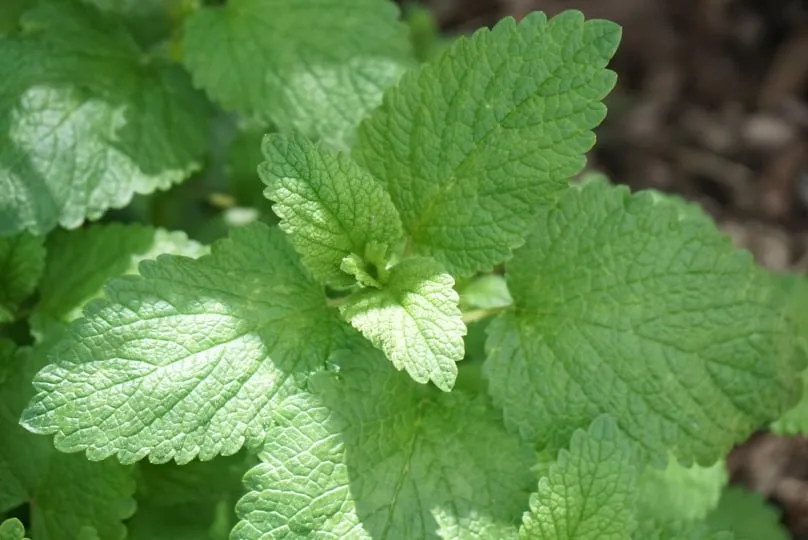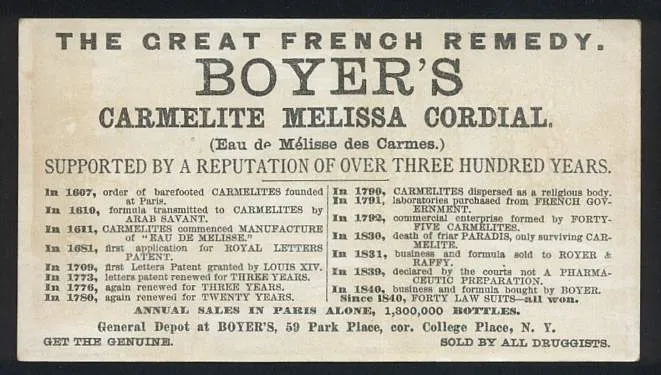One of the things I love about herbalism is that it's often an intellectual exercise which enables you to dive deep not only into nature, but into science, history and culture. Sometimes the starting point is just a herb you have in your garden, which sends you investigating via herbal books and the internet - which is how I ended up making a 600 year old recipe linked to the Carmelite Abbey in France.
Lemon Balm is a beautiful plant - inhaling it's very fragrance is relaxing, and a herbal tea made of this member of the mint family is relaxing and even sleep inducing - it's a good one to mix with hops, lavender, chamomile and other sleepy time herbs. I've put some in an oil to infuse to eventually make a lemon balm salve for herpes (it has some pretty powerful anti viral action) but that's a few weeks away yet (and hopefully I wont get an outbreak in the meantime). Instead, I thought I'd have a go at this medieval recipe, because I find it fascinating to make old recipes like this.

Carmelite water isn't actually water - it's either wine or brandy or another alcohol infused with herbs. The abbeys of Europe were well known for making liquers and tonics with herbs - you might be familiar with Benedictine or Chartreuse. I love the image of the monks and nuns in their physik gardens plucking various medicinal plants to steep in 'water'. Kings and monks alike would enjoy it as a tonic, and it even featured in Alexander Duma's The Three Musketeers. Even the famous English herbalist, botanist and physician, Nicholas Culpepper, wrote about carmelite water:
“It causeth the Mind and Heart to becom merry, and reviveth the Heart fainting to foundlings, especially of such who are overtaken in their sleep, and driveth away al troublesome cares and thought...”

Image Source
Now that sounds just like the brandy talking to me, but I'm always up for giving anything a shot. Trouble is, like many of these old recipes, there's more than one version on the internet and you end up having to just do a little guesswork. So my recipe looks a little like this:
1 cup fresh lemon balm leaves
1/2 cup dried angelica root
2 tsp coriander seed
zest of a small lemon
a cinnamon stick
4 whole cloves
1 bottle (750 ml) brandy
So far, it smells very - alcholic. I've read recipes that add honey to it, so I think I'll try that to make it more palatable. It's meant to be used as a digestive, and a calmative - but currently it smells a bit knock ya socks off.
But, there you go - I've dabbled with a historical recipe.
Now I'm going back to just a straight cup of lemon balm tea in the bath, me thinks. Stress and anxiety relieving, it's a herb for everyone, including children (I'm making a glycerine based sleep time syrup for a friends child who struggles to get to sleep, containing lemon balm, chamomile, and a few other herbs) but it's also good for cognitive function, period pain (hence me in the bath), headaches and even toothache pain (if you have the essential oil).
Do you grow lemon balm?
What do you make with it, or what do you use it for?
Share your story about lemon balm this week in The Herbal Hive - you can win HIVE just for commenting!
With Love,


The Herbal Hive Community
Are you on HIVE yet? Earn for writing! Referral link for FREE account here

